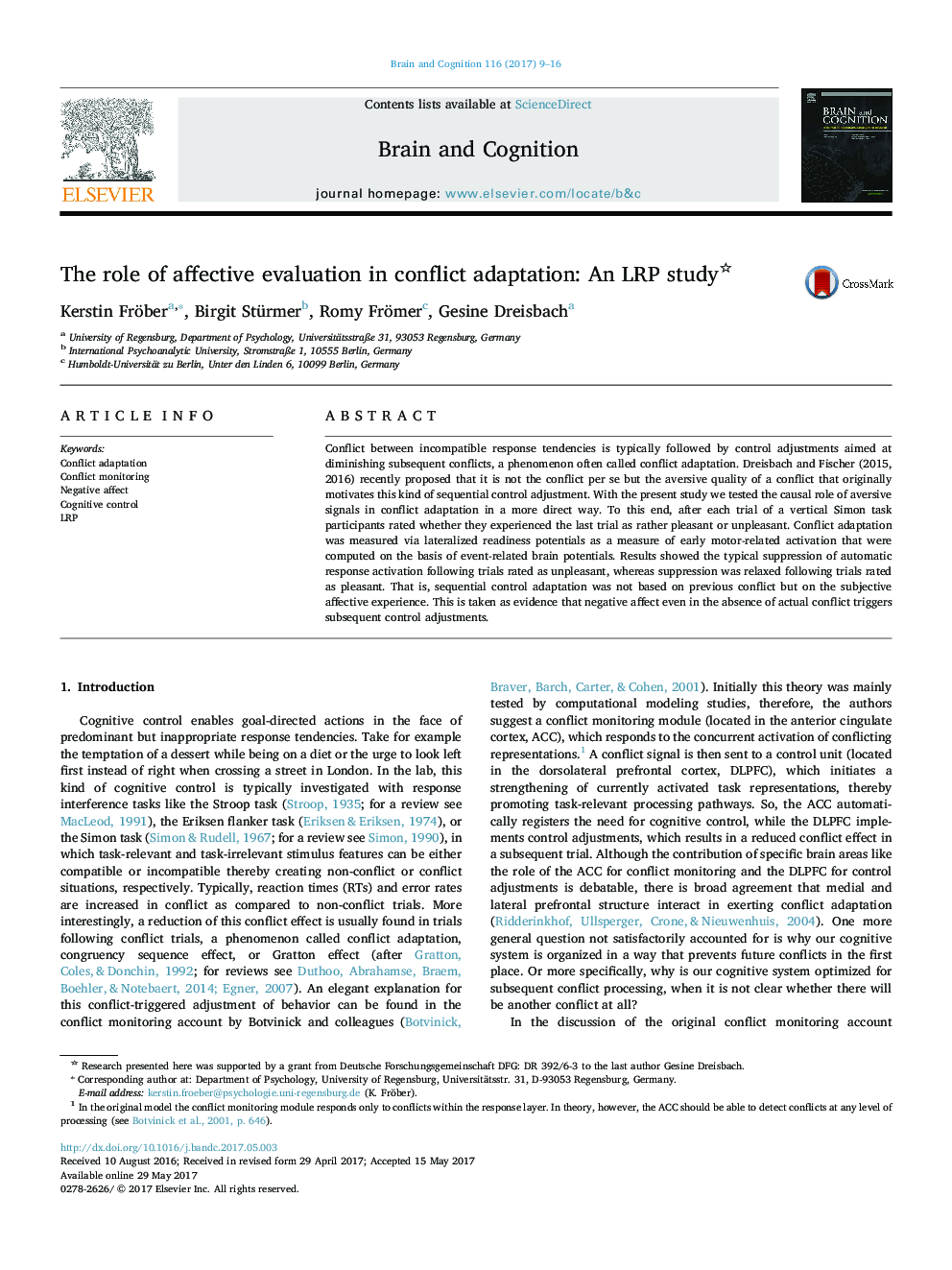| کد مقاله | کد نشریه | سال انتشار | مقاله انگلیسی | نسخه تمام متن |
|---|---|---|---|---|
| 5041118 | 1473955 | 2017 | 8 صفحه PDF | دانلود رایگان |

- We directly tested the causal role of aversive signals in conflict adaptation.
- Participants made an affective rating after each trial in a Simon task.
- Early LRP activation was absent following trials rated as unpleasant.
- Control adaptation was based on the affective experience and not previous conflict.
- Negative affect in the absence of conflict triggers subsequent control adjustments.
Conflict between incompatible response tendencies is typically followed by control adjustments aimed at diminishing subsequent conflicts, a phenomenon often called conflict adaptation. Dreisbach and Fischer (2015, 2016) recently proposed that it is not the conflict per se but the aversive quality of a conflict that originally motivates this kind of sequential control adjustment. With the present study we tested the causal role of aversive signals in conflict adaptation in a more direct way. To this end, after each trial of a vertical Simon task participants rated whether they experienced the last trial as rather pleasant or unpleasant. Conflict adaptation was measured via lateralized readiness potentials as a measure of early motor-related activation that were computed on the basis of event-related brain potentials. Results showed the typical suppression of automatic response activation following trials rated as unpleasant, whereas suppression was relaxed following trials rated as pleasant. That is, sequential control adaptation was not based on previous conflict but on the subjective affective experience. This is taken as evidence that negative affect even in the absence of actual conflict triggers subsequent control adjustments.
Journal: Brain and Cognition - Volume 116, August 2017, Pages 9-16